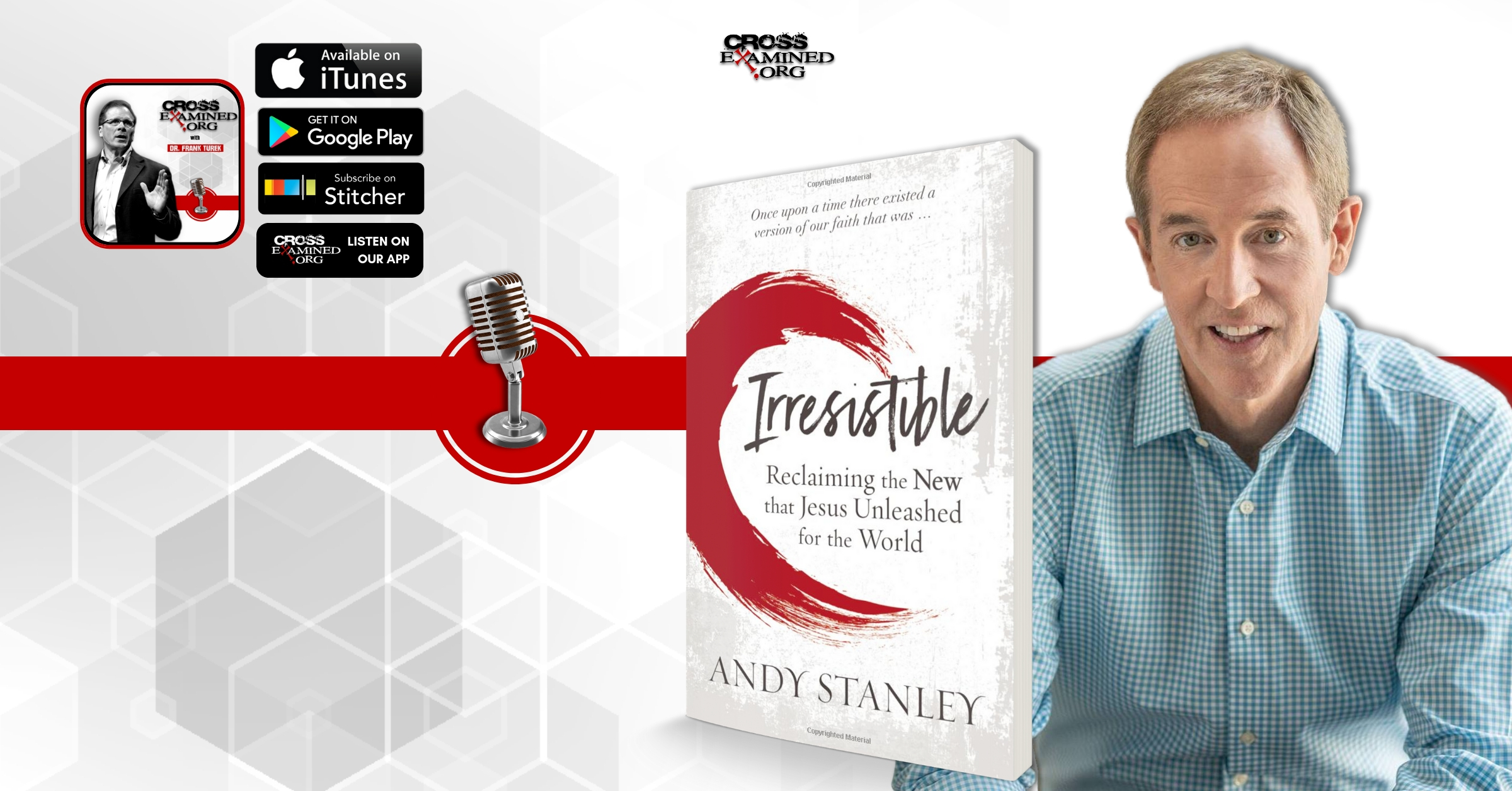Without Training, The Church Will Create More Jon Steingards
Recently Jon Steingard made headlines after he announced over Instagram that he had lost his faith. Steingard was the lead vocalist of the Christian music group Hawk Nelson, which became popular in the early 2000s. Since they had so many fans, this obviously sent shockwaves over social media.
In the post, Steingard gives several reasons why he no longer believes. He does ask some challenging questions when he writes, “If God is all-loving and all-powerful, why is there evil in the world? Can he not do anything about it? Does he choose not to? Is the evil in the world a result of his desire to give us free will? OK then, what about famine and disease and floods and all the suffering that isn’t caused by humans and our free will?”
Philosophers call this the problem of natural evil, and I think it’s one of the bigger challenges out there. That said, I think it’s been addressed successfully. But I do get that not everyone is going to be convinced by every theodicy given for natural evil.
But what I want to address is another objection Jon brought up, because it raised a red flag. He wrote:
“Why does God seem so p***sed off in most of the Old Testament, and then all of a sudden he’s a loving father in the New Testament? Why does he say not to kill, but then instructs Israel to turn around and kill men, women, and children to take the promised land? Why does God lead Job to suffer horrible things just to win a bet with Satan?! Why does he tell Abraham to kill his son (more killing again), and then basically says, “Just kidding, that was a test”?”
Why Is God Nice In The Old Testament, But Always Angry In The New Testament?
So there’s inconsistency with the mean God of the OT and the nice, friendly Jesus of the New. Or is there? Let me run a similar argument to Steingard’s:
“Why is God always ticked in the New Testament, but a loving husband in the Old? Why does Jesus say not to kill, but then he turns around and says “I will throw her onto a sickbed, and those who commit adultery with her I will throw into great tribulation unless they repent of her works, and I will strike her children dead. And all the churches will know that I am he who searches mind and heart, and I will give to each of you according to your works.”
And why does God kill Ananias and Sapphira, even though they gave away half of their property to the church?! Why does he allow Paul to turn a man over to Satan for “the destruction of his flesh” just because a man was in a relationship outside of marriage? (Is this some kind of sick bet?) And why does God allow the Corinthians to become sick and die young, (more killing again) because they took communion wrong?
Or why does Jesus call a Syrophoenician woman a dog? Or why does he curse an innocent fig tree? Or why does Jesus say he hasn’t come to bring peace, but a sword?
In the Old Testament God’s a loving husband, who even stays with Israel even though she’s accurately depicted as a faithless prostitute in Hosea. He says he’d tattoo her on the palms of his hands, and sing over her with joy. He even just forgives the Ninevites even though they had done terrible things in the book of Jonah. In the Old Testament, he’s a good shepherd who will follow Israel with goodness and mercy all the days of their life.“
How Could Steingard Not Know?
So you see, we can easily run this argument of Steingard’s in reverse and twist the texts. What is confusing to me because his father and father-in-law are both pastors. Steingard was a Christian his entire life. How can he not be aware of these verses?
I bring this up to say there’s no disconnect between Yahweh of the Old Testament and the Jesus of the New. The reason why God seems harsh under both covenants is that he doesn’t change, he always hates sin. But he still delights in showing mercy. He’s patient and kind in both testaments, not willing that any should perish. (2 Peter 3:9, Ezekiel 18:41) As Paul writes in Romans 11:22, “Note then the kindness and the severity of God: severity toward those who have fallen, but God’s kindness to you, provided you continue in his kindness. Otherwise, you too will be cut off.”
A Cultural Recipe For Apostasy
I can’t say for sure, but judging from his statements, it’s as if Steingard previously only considered one side of God’s character. When you look at a lot of the seeker-friendly movement that is so prevalent in today’s western church, all you hear is the side of love. So perhaps reading these passages in the Old Testament came as a shock, but shouldn’t when you read the entire New Testament.
It also seems that in our Western-democratic culture, our belief and confidence in the powers of our intellect has increased to the point where we think we can play armchair God and assume we know and would do better. As the philosopher Charles Taylor has observed, it’s only in our modern era that we get “the certainty that we have all the elements we need to carry out a trial of God.”
Steingard Is Sawing Off The Branch He’s Sitting On
But we can’t just assume that a God beyond our understanding can’t exist without begging the question. By abandoning faith in God, he’s put his faith instead in his ability to reason and judge God. But this isn’t a better foundation.
As Douglas Wilson has written, “If there is no God, then all that exists is time and chance acting on matter. If this is true then the difference between your thoughts and mine corresponds to the difference between shaking up a bottle of Mountain Dew and a bottle of Dr. Pepper. You simply fizz atheistically and I fizz theistically. This means that you do not hold to atheism because it is true, but rather because of a series of chemical reactions. Morality, tragedy, and sorrow are equally evanescent. They are all empty sensations created by the chemical reactions of the brain, in turn, created by too much pizza the night before. If there is no God, then all abstractions are chemical epiphenomena, like swamp gas over fetid water. This means that we have no reason for assigning truth and falsity to the chemical fizz we call reasoning or right and wrong to the irrational reaction we call morality. If no God, mankind is a set of bi-pedal carbon units of mostly water. And nothing else.”
In other words, Steingard has tragically sawn off the branch he was sitting on. According to many atheistic philosophers, naturalism spells trouble for reason, free will, and the morality that Steingard is judging God with. If atheism is true, we’re all dancing to the music of our DNA, as Richard Dawkins says.
That means all our beliefs are the product of non-rational, deterministic physical forces beyond our control, whether we’re theists or naturalists. In fact, if Steingard’s conclusions are right, it’s only by accident, not because he’s now more intellectually better than the believer. That is to say; the atheist would have a true accidental belief (which isn’t the same thing as knowledge) rather than warranted true belief (which is knowledge). I hope he scrutinizes his newfound unbelief at least as much as he scrutinized his faith.
The Church Needs To Do Better
As Christians, we can do better in several areas: We need to poke holes in atheism and show where the greater absurdities lie. Hint: Not with Christianity. Naturalism removes the foundation for reason and morality that secularists so greatly cherish. A book I’d highly recommend for this topic is Mitch Stokes’ How to Be An Atheist.
We also need to defend the character of God and not hide from difficult passages in both the Old and New Testament. While it’s good and right to study arguments for the existence of God and especially for the resurrection, we need to go a step further and be able to deal with difficult passages in both the OT and NT. On this topic, I highly recommend Paul Copan’s book Is God a Moral Monster?
It’s also notable that Steingard said nothing about the evidence for the resurrection. It doesn’t matter if we always like what we find in the Bible if Jesus rose from the dead. We have to teach on these bedrock truths of our faith.
And finally, pastors can no longer only preach 20-minute sermons on the love of God in hopes of attracting crowds. Don’t get me wrong. I think we should absolutely major on the love of God. After all, God is love. But even love gets angry at sin, and we need to stop minimizing God’s wrath. Otherwise, I’m afraid we’re going to create many more Jon Steingards.
Recommended resources related to the topic:
I Don’t Have Enough Faith to Be an Atheist (Paperback), and (Sermon) by Norman Geisler and Frank Turek
Stealing From God by Dr. Frank Turek (Book)
Tactics: A Game Plan for Discussing Your Christian Convictions by Greg Koukl (Book)
Defending the Faith on Campus by Frank Turek (DVD Set, mp4 Download set and Complete Package)
So the Next Generation will Know by J. Warner Wallace (Book and Participant’s Guide)
Fearless Faith by Mike Adams, Frank Turek and J. Warner Wallace (Complete DVD Series)
Erik is the creative force behind the YouTube channel Testify, which is an educational channel built to help inspire people’s confidence in the text of the New Testament and the truth of the Christian faith.
Original Blog Source: https://bit.ly/3eevJbz












Leave a Reply
Want to join the discussion?Feel free to contribute!